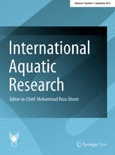
International Aquatic Research
Scope & Guideline
Navigating the currents of aquatic biology and ecology.
Introduction
Aims and Scopes
- Aquaculture and Fishery Science:
Research on the growth, health, and management of fish species, including dietary impacts, breeding practices, and the influence of environmental factors on aquaculture productivity. - Microalgae and Macroalgae Applications:
Studies exploring the nutritional benefits, ecological roles, and commercial applications of microalgae and macroalgae, particularly in aquaculture feed and bioremediation. - Water Quality Management:
Investigations into the dynamics of water quality in aquatic systems, including the effects of pollutants, salinity, and other environmental parameters on aquatic life. - Pathogen Dynamics and Disease Management:
Research focusing on the interactions between aquatic organisms and pathogens, including studies on disease resistance and immunological responses in fish and crustaceans. - Ecological and Environmental Impacts:
Examinations of the ecological impacts of aquaculture practices on local ecosystems, including studies on zooplankton communities and the broader implications for aquatic biodiversity.
Trending and Emerging
- Sustainable Aquaculture Practices:
There is an increasing focus on sustainable practices in aquaculture, emphasizing the use of alternative feed sources, such as microalgae, and innovative systems like biofloc technology. - Health and Immunological Studies:
Research on the health and immunological responses of aquatic species to various stressors and pathogens has gained traction, indicating a shift towards understanding resilience in aquaculture. - Phytoremediation and Wastewater Treatment:
Emerging studies are exploring the use of aquatic plants and microalgae for the remediation of wastewater, reflecting a growing emphasis on environmental sustainability and resource recovery. - Molecular Characterization of Aquatic Species:
There is a notable increase in research involving molecular techniques to characterize aquatic species, which aids in understanding biodiversity and improving aquaculture practices. - Impact of Climate Change on Aquatic Systems:
Research addressing the effects of climate change on aquatic ecosystems and species resilience is becoming more prevalent, highlighting the urgent need for adaptive management strategies.
Declining or Waning
- Traditional Aquaculture Practices:
Research focusing on conventional aquaculture methods has seen a decline, possibly as the field shifts towards more sustainable and innovative practices that minimize environmental impact. - Toxicology of Common Chemicals:
While studies on toxic effects of common chemicals on aquatic species were once prevalent, there appears to be a waning interest in this area, with fewer publications addressing this topic compared to emerging themes. - Generalized Environmental Monitoring:
There is a noticeable reduction in studies that broadly monitor environmental conditions without a specific focus on their impact on aquatic species, as more targeted research questions become prioritized.
Similar Journals

MARINE AND FRESHWATER RESEARCH
Advancing knowledge in marine and freshwater science.Marine and Freshwater Research is a prestigious journal published by CSIRO PUBLISHING that serves as a key platform for the dissemination of cutting-edge research in the fields of Aquatic Science, Ecology, and Oceanography. With an impactful presence since its inception in 1948, the journal provides critical insights into the dynamics of freshwater and marine ecosystems, promoting interdisciplinary approaches that contribute to our understanding of biodiversity and sustainability. Currently ranked in the Q2 category across major scientific domains, including Ecology and Aquatic Science, it enjoys a robust academic reputation supported by impressive Scopus rankings, such as Rank #66/247 in Aquatic Science and Rank #44/145 in Oceanography, reflecting its high citation impact and relevance. While offering a subscription-based access model, the journal remains dedicated to fostering dialogue and innovation within the scientific community, aiming to bridge the gap between research findings and practical applications in environmental management. Located in Australia, Marine and Freshwater Research is an essential resource for researchers, professionals, and students dedicated to exploring the complexities of aquatic ecosystems and advocating for their preservation.

ISRAELI JOURNAL OF AQUACULTURE-BAMIDGEH
Pioneering research for sustainable aquatic farming solutions.Welcome to the Israeli Journal of Aquaculture-Bamidgeh, published by AquacultureHub Inc, a pivotal platform dedicated to advancing the field of aquaculture studies since its inception in 1988. With a focus on innovative research and practical applications within the realms of Agronomy and Aquatic Sciences, this journal has established a reputation for disseminating high-quality findings that contribute to sustainable practices in aquatic farming. The journal, although classified in the Q3 and Q4 quartiles for its respective categories, offers valuable insights for researchers and practitioners alike, allowing them to stay abreast of developments in aquaculture challenges and solutions. While it's currently not an Open Access journal, the Israeli Journal of Aquaculture-Bamidgeh is committed to providing a thorough avenue for scholarly exchange and fostering collaborations across the global aquaculture community. Explore impactful studies and the latest trends to enhance your knowledge and research in this vital sector.

ACTA ICHTHYOLOGICA ET PISCATORIA
Championing research for sustainable fisheries management.ACTA ICHTHYOLOGICA ET PISCATORIA is a distinguished peer-reviewed journal dedicated to the field of ichthyology and fisheries science, published by PENSOFT PUBLISHERS since its establishment as an open-access publication in 1970. Based in Poland, this journal serves as an essential platform for researchers, professionals, and students aiming to contribute to the scientific understanding of aquatic life. With an impressive H-index reflecting its growing influence, ACTA ICHTHYOLOGICA ET PISCATORIA is currently ranked in the Q3 quartile within both the Animal Science and Zoology and Aquatic Science categories. According to Scopus, it holds a rank of #227 in Animal Science and Zoology and #147 in Aquatic Science, demonstrating its relevance and contribution to these fields. The journal’s commitment to open access ensures that research findings are widely disseminated, fostering collaboration and knowledge sharing among the scientific community. With a historical scope extending from 1996 to 2024, ACTA ICHTHYOLOGICA ET PISCATORIA remains a vital resource for advancing aquatic research and fostering new insights into the complexities of fish biology and fisheries management.
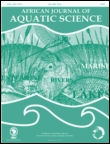
AFRICAN JOURNAL OF AQUATIC SCIENCE
Innovating solutions for freshwater and marine challenges.AFRICAN JOURNAL OF AQUATIC SCIENCE, published by TAYLOR & FRANCIS LTD, is a premier scholarly journal dedicated to the field of aquatic science, ecology, and environmental management, playing a crucial role in advancing research and knowledge in these vital areas. With an impressive Q2 ranking in both Aquatic Science and Ecology, Evolution, Behavior and Systematics, the journal seeks to publish high-quality research encompassing a wide range of topics related to freshwater and marine ecosystems, including biodiversity, conservation strategies, and the impacts of climate change. Featuring a rich history of publication from 2000 to 2024, the journal not only embraces rigorous peer review but also aims to foster collaboration and dialogue among researchers, practitioners, and students interested in aquatic environments. Readers will find that the journal’s commitment to impactful scientific communication is reflected in its notable rankings within the Scopus database, making it an essential resource for those engaged in aquatic research and management.

Fishes is a premier academic journal dedicated to the exploration and dissemination of cutting-edge research in the fields of aquatic science and ecology. Published by MDPI in Switzerland, this open-access journal has been accessible to researchers globally since its inception in 2016, allowing for the rapid exchange of knowledge that fosters scientific advancement in the study of fish and aquatic ecosystems. With its convergence in the years 2016 to 2024, Fishes proudly holds a notable position in the academic community, evidenced by its category quartile rankings of Q3 in Aquatic Science and Q2 in Ecology for 2023. The journal consistently features innovative research encompassing ecological interactions, conservation strategies, and evolutionary studies within aquatic environments. By integrating interdisciplinary approaches and encouraging contributions from a diverse array of experts, Fishes serves as an invaluable resource for researchers, professionals, and students alike, contributing to the understanding and preservation of our precious aquatic biodiversity.
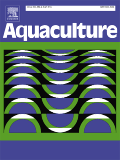
AQUACULTURE
Advancing aquatic science for a sustainable future.AQUACULTURE is a premier academic journal dedicated to the field of aquatic science, published by Elsevier. With a robust Impact Factor, the journal is renowned for its significant contributions to aquatic biology and the sustainable development of aquaculture practices. Since its inception in 1972, AQUACULTURE has established itself as an essential resource for researchers and professionals in the industry, regularly ranked in the Q1 category of aquatic science journals and positioned in the 14th percentile of its field according to Scopus rankings. Covering a wide array of topics including fish biology, aquaculture technology, sustainable practices, and environmental impacts, AQUACULTURE aims to disseminate innovative research findings that drive the industry forward. The journal, accessible to a global audience from its base in the Netherlands, continues to foster collaboration, discussion, and application of research to both academic and practical realms within aquaculture. Researchers and students alike will find valuable insights and current trends in this highly respected publication.
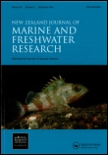
NEW ZEALAND JOURNAL OF MARINE AND FRESHWATER RESEARCH
Fostering Insights into Biodiversity and ConservationNEW ZEALAND JOURNAL OF MARINE AND FRESHWATER RESEARCH, published by Taylor & Francis Ltd, stands as a distinguished platform for the dissemination of innovative research in the realms of aquatic science and ecology. With an ISSN of 0028-8330 and E-ISSN 1175-8805, this journal has been curating significant scientific contributions since its inception in 1967, continuing through to 2024. Recognized in the Q2 category across multiple relevant fields—including Aquatic Science, Ecology, and Water Science—this journal ranks notably in Scopus, with a 74th percentile for Ecology, Evolution, Behavior and Systematics, highlighting its impact and relevance within the scientific community. Though not an open-access publication, its rigorous peer-reviewed articles offer insights that resonate with researchers, professionals, and students who are passionate about advancing our understanding of freshwater and marine ecosystems. By fostering a collaborative space for ecological and environmental inquiries, the NEW ZEALAND JOURNAL OF MARINE AND FRESHWATER RESEARCH is essential for those aiming to contribute to the vital conversations around biodiversity, conservation, and sustainable management of aquatic resources.
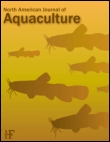
NORTH AMERICAN JOURNAL OF AQUACULTURE
Transforming aquaculture practices with cutting-edge research.North American Journal of Aquaculture, published by Wiley, is a premier resource in the field of aquatic science, dedicated to advancing knowledge and research in aquaculture practices across North America. With an ISSN of 1522-2055 and E-ISSN of 1548-8454, this journal serves as an essential platform for researchers, industry professionals, and students focusing on sustainable practices, species cultivation, and aquatic ecosystems. Notably, it ranks in the Q3 category in Aquatic Science according to the 2023 metrics, and stands at the 135th position out of 247 in the Scopus rankings for Agricultural and Biological Sciences—Aquatic Science, reflecting its contribution to the field. As the journal continues to evolve through its converged coverage from 1999 to 2024, it remains committed to disseminating impactful research while providing open access options to facilitate broad readership and engagement. The North American Journal of Aquaculture aims to inspire innovative solutions for the aquaculture sector while fostering a collaborative environment for aquatic science research.

FISHERIES SCIENCE
Bridging research and practice in fisheries management.Fisheries Science, published by Springer Japan KK, is a renowned journal in the field of aquatic science, effectively bridging the gap between scientific research and practical application in fisheries management. With an ISSN of 0919-9268 and an E-ISSN of 1444-2906, this journal serves as a vital resource for researchers, professionals, and students interested in advancing their knowledge and understanding of aquatic ecosystems and fishery practices. Operating within a competitive landscape, Fisheries Science has achieved a respectable ranking in Scopus, placing 96th out of 247 journals in the Agricultural and Biological Sciences > Aquatic Science category, showcasing its integral role in contributing to this dynamic field. The journal encompasses a wide range of topics from sustainable development to conservation strategies, aiming to foster collaborative research and innovative solutions to the challenges facing fisheries today. While not an open-access journal, Fisheries Science remains a key publication for those dedicated to marine science and the sustainable management of aquatic resources, with a historical footprint extending from 1994 to 2024.
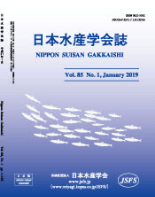
NIPPON SUISAN GAKKAISHI
Bridging Tradition and Innovation in Fisheries ScienceNIPPON SUISAN GAKKAISHI, published by the Japanese Society of Fisheries Science, is a prestigious journal with a long history dating back to its inaugural issue in 1932. This journal, which spans key contributions to the field of Aquatic Science, serves as a vital platform for the dissemination of important research findings related to fisheries and aquatic biology, fostering knowledge and innovation in Japan and beyond. Although it is not an open-access publication, its rigorous peer-review process ensures the quality and integrity of the articles published. The journal is currently listed in the Q4 category for Aquatic Science according to the 2023 metrics, placing it within a niche but significant corner of the research landscape. With an ISSN of 0021-5392 and E-ISSN of 1349-998X, it continues to provide essential insights that benefit researchers, professionals, and students alike, highlighting advancements and challenges within aquatic ecosystems over a converged year span that continues to evolve through to 2024.